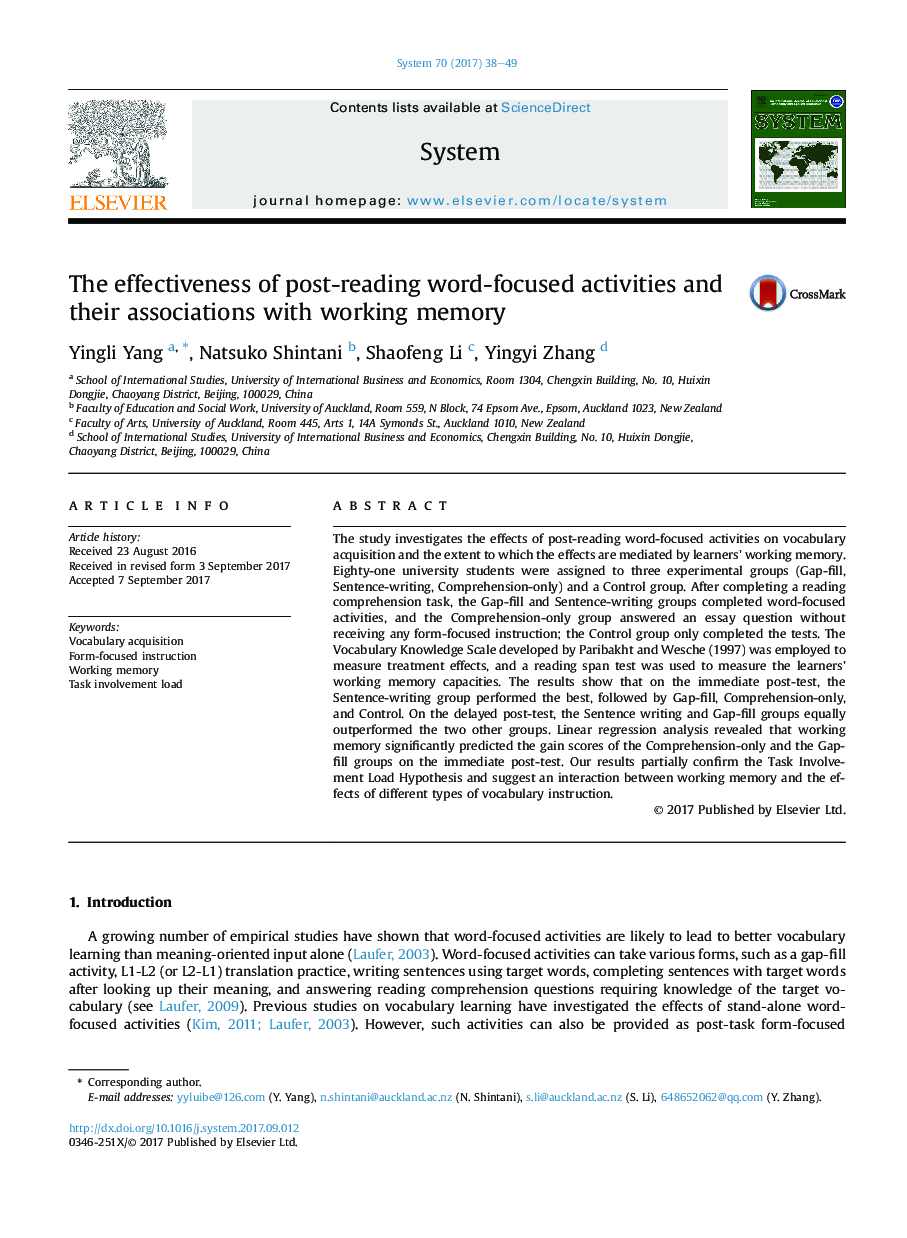| Article ID | Journal | Published Year | Pages | File Type |
|---|---|---|---|---|
| 4941300 | System | 2017 | 12 Pages |
Abstract
The study investigates the effects of post-reading word-focused activities on vocabulary acquisition and the extent to which the effects are mediated by learners' working memory. Eighty-one university students were assigned to three experimental groups (Gap-fill, Sentence-writing, Comprehension-only) and a Control group. After completing a reading comprehension task, the Gap-fill and Sentence-writing groups completed word-focused activities, and the Comprehension-only group answered an essay question without receiving any form-focused instruction; the Control group only completed the tests. The Vocabulary Knowledge Scale developed by Paribakht and Wesche (1997) was employed to measure treatment effects, and a reading span test was used to measure the learners' working memory capacities. The results show that on the immediate post-test, the Sentence-writing group performed the best, followed by Gap-fill, Comprehension-only, and Control. On the delayed post-test, the Sentence writing and Gap-fill groups equally outperformed the two other groups. Linear regression analysis revealed that working memory significantly predicted the gain scores of the Comprehension-only and the Gap-fill groups on the immediate post-test. Our results partially confirm the Task Involvement Load Hypothesis and suggest an interaction between working memory and the effects of different types of vocabulary instruction.
Related Topics
Social Sciences and Humanities
Arts and Humanities
Language and Linguistics
Authors
Yingli Yang, Natsuko Shintani, Shaofeng Li, Yingyi Zhang,
